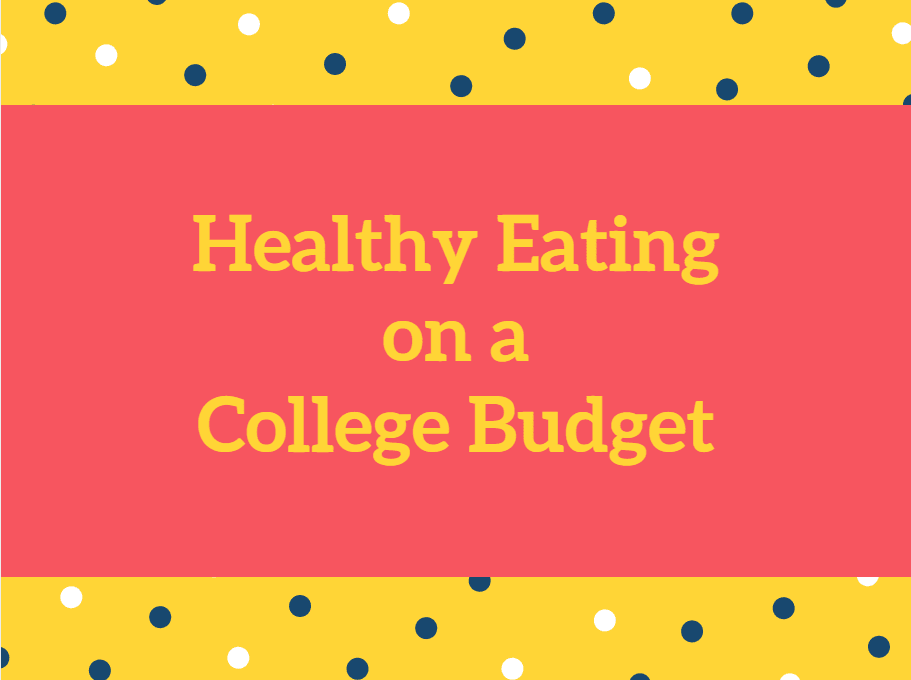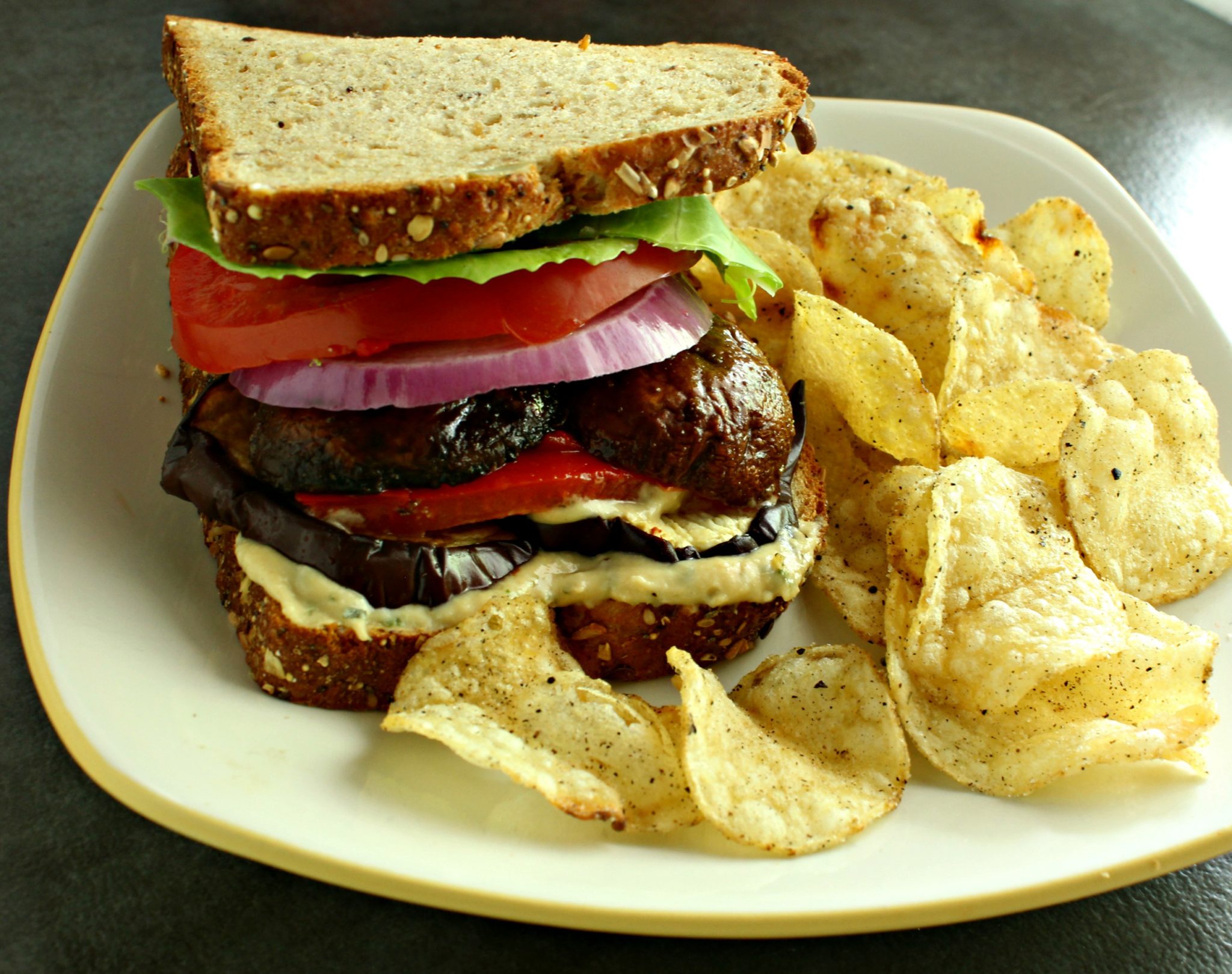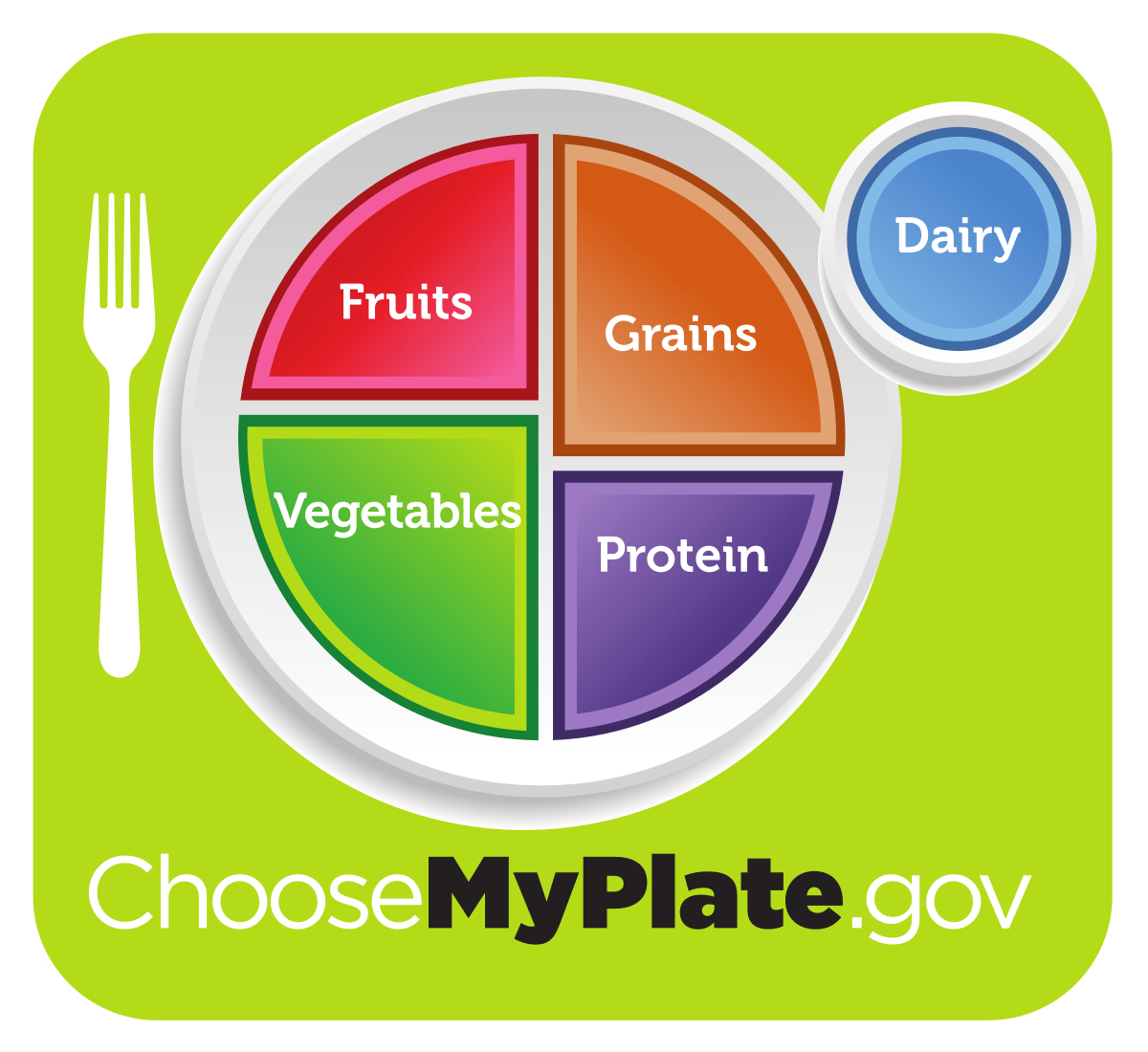
Hi guys!! While I’m off in Europe Courtney will be taking over today to share a post on healthy eating with a college sized budget. I can totally agree that it can be challenging in college especially since it’s your first time on your own. I personally lived off of bagel sandwiches with shredded cheddar cheese and microwaveable bacon. Such a nutrition major. Ha. Enjoy all the tips from Courtney and feel free to share yours in the comments 🙂 Take it away Courtney…. (I’m guessing she might have some slightly more nutritious habits and meals to share then mine!)

Let’s face it, eating healthy can be hard, especially when you’re on a college budget that limits you to have a diet consisting of Top Ramen, 2/$1 liters of soda and 5$ “X-Press” pizzas. For many college students, the so-called “Freshman 15” is far from an old wives tale. Many students find themselves gaining unwanted weight and spending too much money on food every semester. Fortunately, I’ve been there-and actually, I still AM there because I am currently still in school, working part-time and somehow managing to make a well-rounded and balanced diet part of my priorities. Being a nutrition student, I feel that it is my duty to practice and preach nutrition to my peers in a realistic manner.
What if I told you that there are ways that you can eat healthier without spending more than $30/ week on groceries? While this mock meal plan might not be the most “gourmet” out there, this is meant to be more like a guideline for those of you looking to incorporate healthy options without breaking the bank. Before I lay out the grocery list-I want to provide a helpful guideline for all meals that will illustrate portion sizes of each food group. MyPlate is a great visual tool to use to make sure that your meal has all the key things your body needs to be healthy. You can think of MyPlate as the ultimate goal when preparing your meals or even when you are out ordering at a restaurant.

I went out to my local Wal-Mart to see what meal plan I could create while staying within my budget of $30. Wal-mart has some great deals for budget-friendly produce and just because it is known for being a “discount store” does not mean that the food choices there any less nutritionally dense than other supermarkets. I personally do a lot of my shopping there because of the convenience and price. It is not always about where you shop but rather what kinds of products you are purchasing that truly matters. When it comes to meal prep, preparing your weekly meals not only saves you more time in the long run and less stress during the week but also makes it easy to avoid splurging on something on quick and easy that might be less nutritious. I usually take my insulated lunch bag (designer brand of course- I got mine for 6$ at Target and usually add a frozen ice-pack) and bring it with me on busy days at school. I prepare my breakfast in advance for quick “on-the-go” access if I’m running late after studying binge watching Supernatural on Netflix until 2am. (Anyone else feel me?) The breakfasts I will provide as meal plan options can be made easily, while still ensuring that you are getting what you need for a good start to your day. My personal favorite, are my Banana-Oat muffins. They are a healthy alternative to coffee shop pastries plus you can bake them on Sunday evening and throw them in the fridge/freezer until the next morning and then just microwave them before you head out the door.
Banana Oatmeal Muffins
Ingredients
Instructions

1/2 gallon of milk: $2.04
12 eggs: $1.78
3 bananas: $1.70
1 container of oatmeal: $1.72
2 large apples: $0.89
6 chicken thighs: $1.96
1 package frozen broccoli: $1.44
1 jar of pasta sauce: $1.57
1 box of whole wheat pasta: $1.08
1 loaf of whole wheat bread: $1.72
1 package of turkey meat: $2.96
1 bag brown rice: $2.16
1 package of Swiss cheese: $2.22
1 head of lettuce: $0.78
1 bag of baby carrots: $1.48
1 package of String Cheese: $1/6
2 large tomatoes: $1.18
2 sweet potatoes: $1.28
BBQ sauce: $1.48
1 jar of peanut butter: $2.18
Total: $30.90

Breakfast choices:
- Banana-Oat Muffin, 2 hardboiled eggs, ½ an apple
- 2 eggs, 2 slices of turkey bacon, 1 slice whole wheat toast, 8 oz. milk
Lunch choices:
- BBQ baked chicken thigh, brown rice, broccoli
- Turkey BLT sandwich, baby carrots, String Cheese
Dinner choices:
- Spaghetti with turkey meat, broccoli, “garlic-toast” (butter + garlic powder)
- Baked chicken breast, ½ sweet potato, steamed baby carrots
Snacks: Apple slices with PB/ baby carrots/ string cheese/ banana-oat muffin/ hard-boiled egg
***You could also interchange the lunch and dinners options based on you preferences as well as tweak certain foods to ones you like that are within the same price range. There is a lot of variety among produce, grains and protein choices that all have similar price points.

- Eat out less: Eating out can add up very quickly as a college student, especially when you use eating out as a social gathering with friends. My tip? Have home-cooked meals and invite friends over to make a “potluck” where you all can share food and hang out together without worrying about dropping $15-25 on a meal.
- Don’t spend too much money on Alcohol: I personally do not go out much but my sister, who goes out every weekend constantly complains about how much her funds drop when she goes out because drinks can be very expensive and add up very quickly. If you like going out, try to share drinks with a friend or opt for “Drink Deals” and specials so that you can save a little extra cash. Something else I should note about drinking, remember that the more you drink-the more likely it is that you will want to spend money on food while you are out (aka: when you get the “drunchies”). A great tip is to bring a set amount cash you are willing to spend on drinks so that you are not tempted to use your credit card.
- Plan Ahead: Set aside $30 minimum every week specifically for groceries and don’t spend it on anything else-no matter how much you want that cute shirt from Target.
It is a common misconception that you need to purchase “all organic” produce at higher-end grocery stores in order to have a healthy and nutrient-rich diet, which really isn’t the case. I hope that these tips and tricks can help you save a little extra money whether you are a “broke college student” like me or just trying to budget a healthier diet without spending too much money. -Courtney



